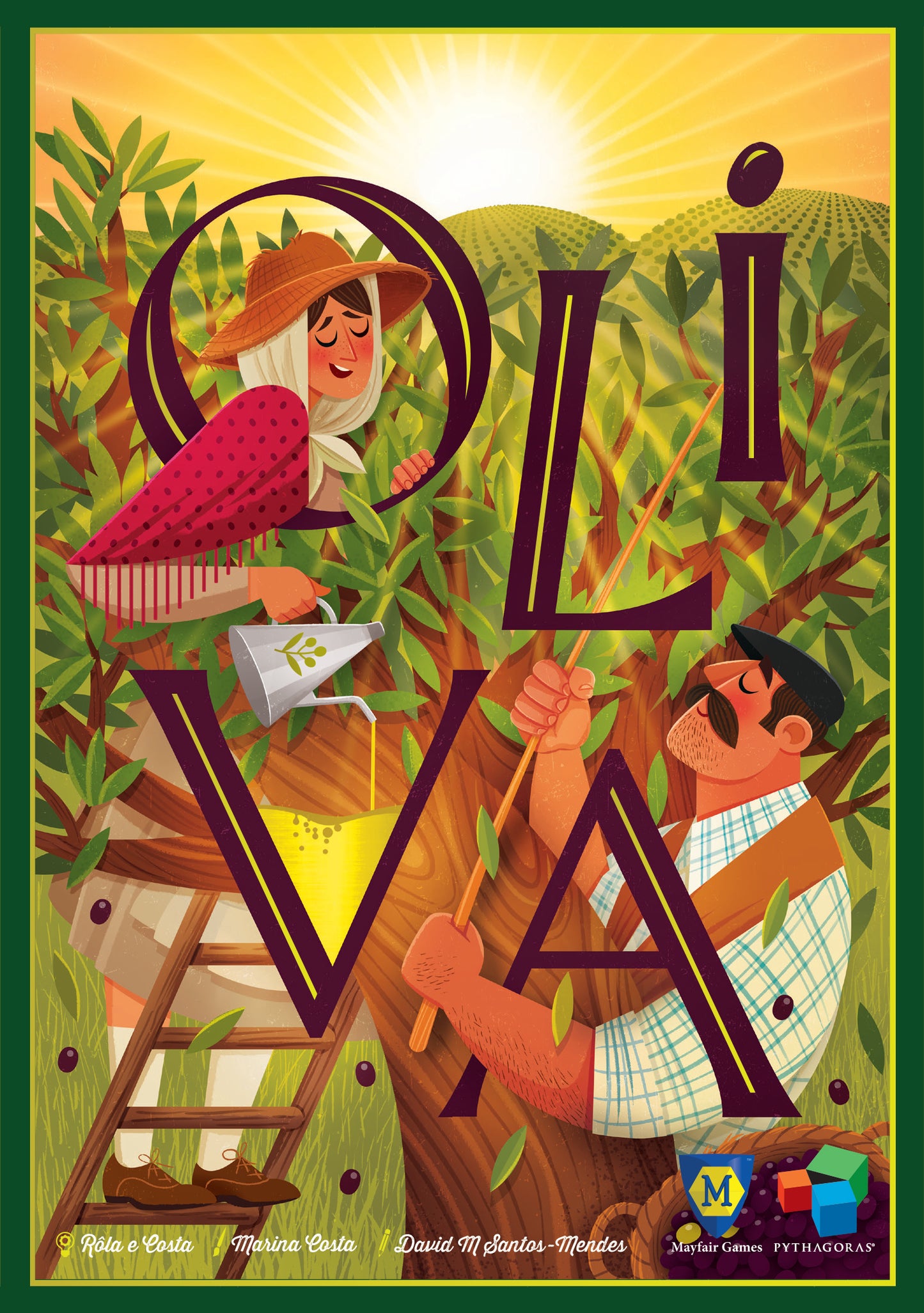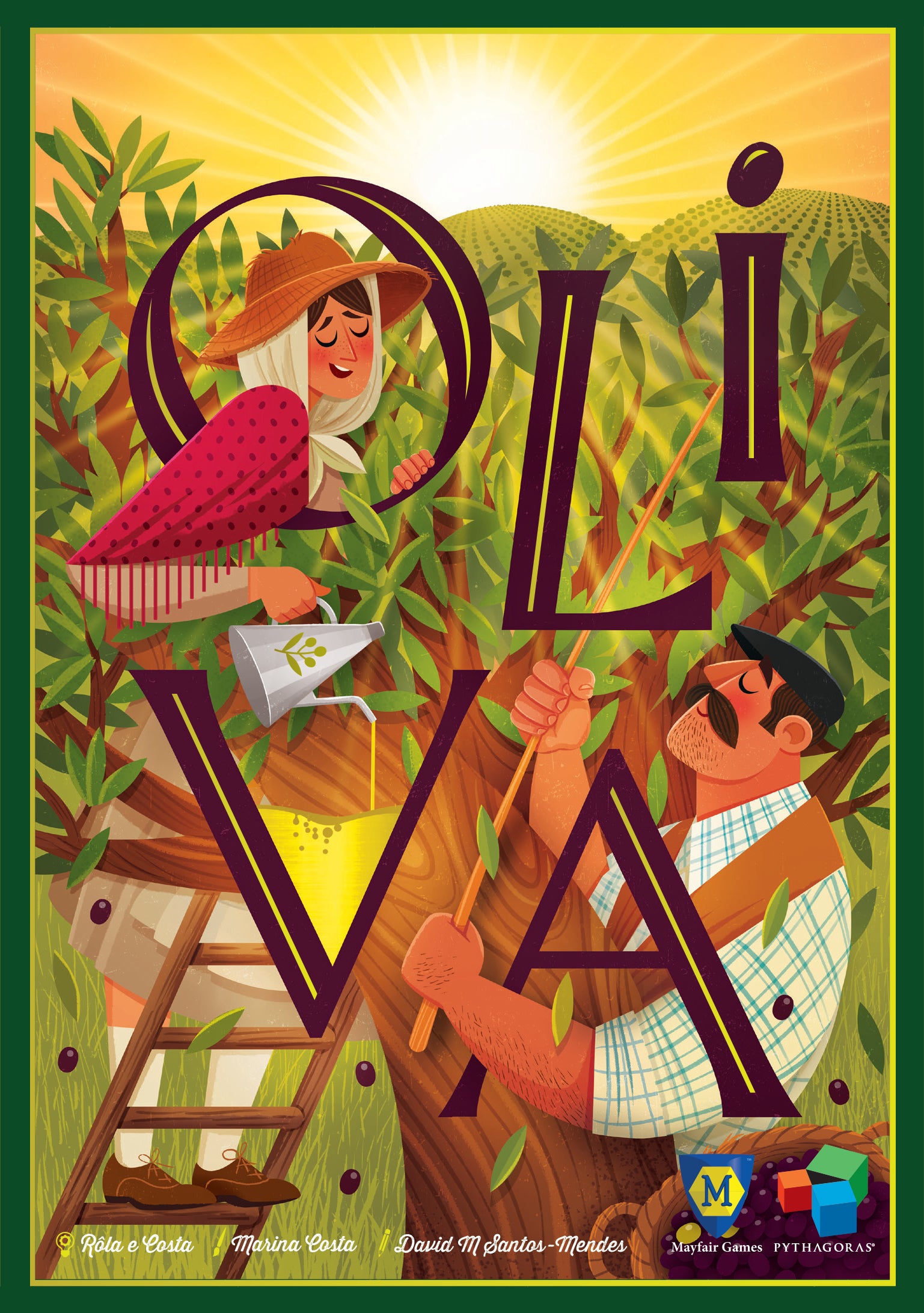Pythagoras Games
***Pre Order*** Oliva
***Pre Order*** Oliva
Couldn't load pickup availability
Pre-order Expected arrival October 2025
In Oliva, you take on the role of a farmer competing to become the most successful olive oil producer in the region. By managing your farm, you harvest olives, press them into olive oil, and sell your products to various markets worldwide.
During your turn, you select and reveal action cards to perform their corresponding actions. Your actions become more powerful based on the cards visible on all players' boards.
Oliva is played over a certain number of rounds based on the player count. After the final round is completed, the farmer with the most victory points is the winner.
The significance of olive oil dates back to Visigothic times, when laws protected olive trees. Arabic influence later expanded olive cultivation, and their word al-zait evolved into the modern terms Azeite in Portuguese and Aceite in Spanish.
Portugal's olive oil industry became a major export powerhouse, gaining recognition at the 1889 Paris Exposition. In the 20th century, Portugal began industrializing its olive cultivation methods. The 1950s marked a golden era, with record expansion of olive groves and unprecedented yields, despite the persistence of small-scale local production. Export markets flourished in Asia, the USA, and European markets with Portuguese communities, alongside colonial trade.
As industrialization progressed, farmers turned to more profitable crops such as potatoes and wine grapes, leading to a decline in olive cultivation until the early 21st century. Today, the Mediterranean region maintains its reputation for excellence, producing 95% of the world's olive oil.
Oliva captures 1950s and 1960s Portuguese olive oil production, featuring water-powered, large stone mills and hand operated presses. The game pays tribute to farmers' expertise and dedication, showcasing traditional methods using sisal mats, stone-carved basins, and furnace-heated water to extract the precious liquid.
In North Africa, particularly Morocco and Tunisia, traditional olive oil production excelled during the 1950s, with many small scale producers using age-old pressing techniques passed down through generations. These regions were known for their robust, peppery oils produced from indigenous olive varieties that were well-adapted to the arid Mediterranean climate.
Oliva depicts both traditional and modernizing production methods, highlighting the productivity of small olive groves that may still be admired today on Portugal's hillsides. The game reflects Mediterranean olive oil production's scope and quality, as Spain nears Italy's production levels, followed closely by Greece and Turkey.


